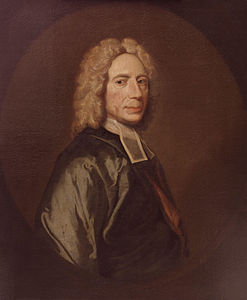Analysis of Hymn 99
Isaac Watts 1674 (Southampton, Hampshire) – 1748 (Stoke Newington, Middlesex)
Stones made children of Abraham.
Vain are the hopes that rebels place
Upon their birth and blood,
Descended from a pious race;
Their fathers now with God.
He from the caves of earth and hell
Can take the hardest stones,
And fill the house of Abram well
With new-created sons.
Such wondrous power doth he possess
Who formed our mortal frame,
Who called the world from emptiness,
The world obeyed and came.
| Scheme | X AXAX BXBX XCXC |
|---|---|
| Poetic Form | |
| Metre | 1110110 11011101 011101 01010101 110111 11011101 110101 01011011 110101 110101101 1110101 11011100 010101 |
| Closest metre | Iambic tetrameter |
| Characters | 411 |
| Words | 77 |
| Sentences | 7 |
| Stanzas | 4 |
| Stanza Lengths | 1, 4, 4, 4 |
| Lines Amount | 13 |
| Letters per line (avg) | 25 |
| Words per line (avg) | 6 |
| Letters per stanza (avg) | 81 |
| Words per stanza (avg) | 18 |
Font size:
Submitted on May 13, 2011
Modified on March 05, 2023
- 23 sec read
- 368 Views
Citation
Use the citation below to add this poem analysis to your bibliography:
Style:MLAChicagoAPA
"Hymn 99" Poetry.com. STANDS4 LLC, 2024. Web. 11 Jun 2024. <https://www.poetry.com/poem-analysis/19610/hymn-99>.


Discuss this Isaac Watts poem analysis with the community:
Report Comment
We're doing our best to make sure our content is useful, accurate and safe.
If by any chance you spot an inappropriate comment while navigating through our website please use this form to let us know, and we'll take care of it shortly.
Attachment
You need to be logged in to favorite.
Log In